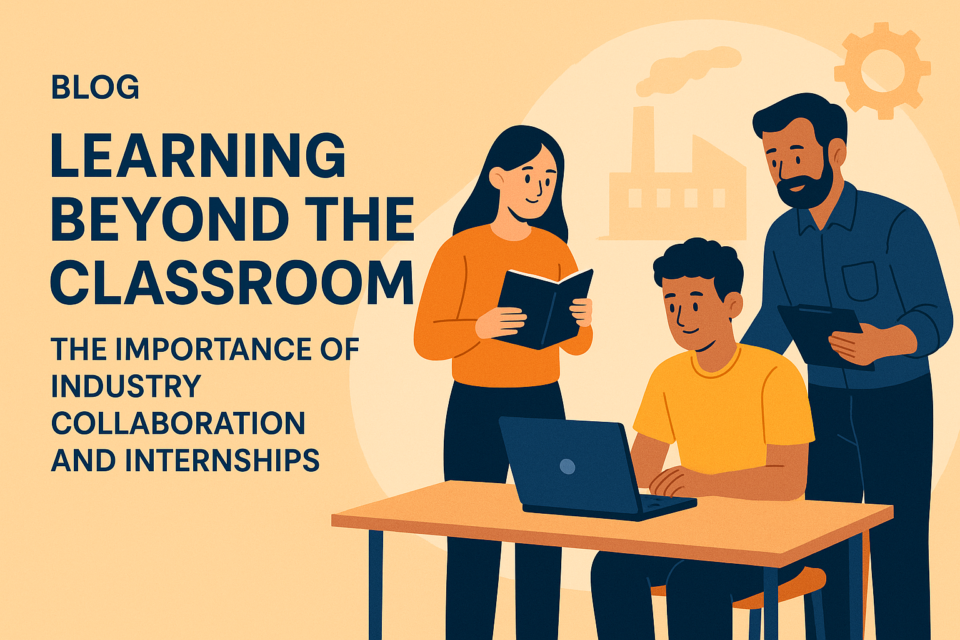Learning Beyond the Classroom: The Importance of Industry Collaboration and Internships
In today’s fast-paced technological landscape, technical education plays a vital role in shaping the future of our youth. However, traditional classroom learning alone is not enough to equip students with the skills required to succeed in the industry. This is where industry collaboration and internships come into play.
Bridging the Skill Gap
Industry collaboration and internships help bridge the gap between theoretical knowledge and practical application. By working with industry professionals, students gain hands-on experience and develop skills that are in high demand. This exposure enables them to understand the latest industry trends, technologies, and best practices.
Benefits of Industry Collaboration and Internships
- Practical Experience: Students gain practical experience, applying theoretical concepts to real-world problems.
- Industry Insights: Industry collaboration provides students with valuable insights into the latest technologies, trends, and industry requirements.
- Exposure to Real-Life Projects: Students work on real-life projects under the guidance of industry mentors, allowing them to develop professionally in a real-world ecosystem.
- Industry-Established Centers of Excellence: Industry partners can establish Centers of Excellence in technical institutes, grooming students from day one and preparing them to fit seamlessly into the professional system during internships.
- Networking Opportunities: Internships offer students a chance to network with professionals, potentially leading to job opportunities or mentorship.
- Global Certifications: Students may have the opportunity to acquire global certifications, enhancing their chances of being hired by top companies worldwide.
- Enhanced Employability: Economic Survey 2023-24: Only 51% graduates employable. According to the India Skills Report 2024, employability among engineering graduates increases by over 35% when they undergo internship programs and industry exposure. Furthermore, over 60% of employers now prefer hiring candidates who have completed at least one industry internship.
*Lamrin Tech Skills University (LTSU), an industry-incubated university, is leading by example in fostering deep industry collaboration in technical education. Its curriculum is designed with direct input from industry leaders, ensuring it remains aligned with real-world requirements. LTSU hosts a Centre of Excellence established by IBM, another supported by the NSDC-backed Centre for Future Skills. The university emphasizes *Project-Based Learning (PBL), where students engage in hands-on projects mentored by seasoned industry practitioners. These projects, along with mandatory internships integrated into the academic program, ensure that students graduate not only with strong theoretical foundations but also with robust industry-ready skills.

Supporting Data Points:
- NASSCOM reports that 65% of jobs that Gen Z will perform don’t yet exist, making adaptable, hands-on skills critical.
- A World Economic Forum study highlights that 94% of business leaders expect employees to pick up new skills on the job, underscoring the value of industry-integrated learning.
- According to AICTE, only 41% of Indian engineering graduates were employable in 2023; institutions that implement PBL and industry collaboration show employability rates as high as 80%.
- Institutions with active industry collaborations see 25–40% higher placement packages on average, as per data from higher education analytics reports.
Conclusion
Industry collaboration and internships are essential components of technical education, providing students with industry-relevant skills, experience, and insights necessary to succeed in their chosen careers. By fostering partnerships with industry leaders, educational institutions can ensure that their students are well-equipped to meet the demands of the ever-evolving technological landscape.
Prof. (Dr.) H S Dhami
Executive Dean
Engineering and Technology

